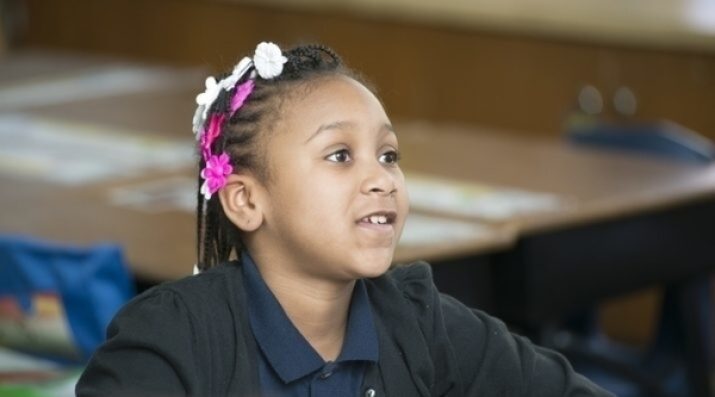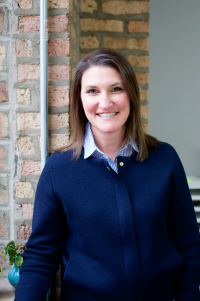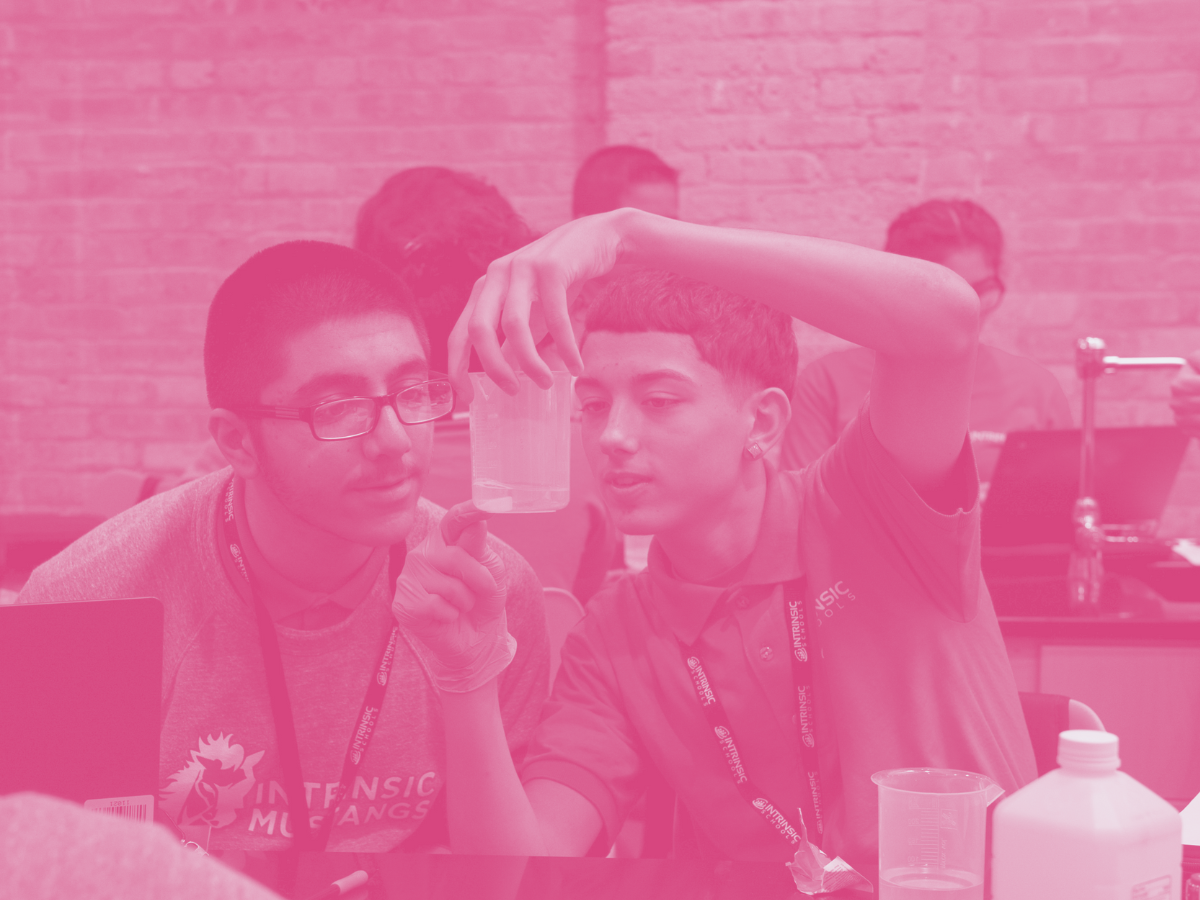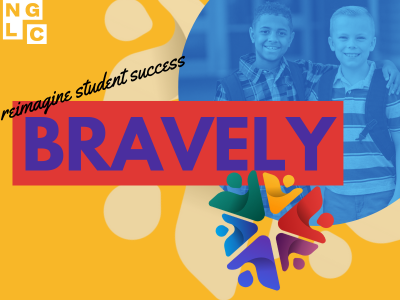New Designs for School
Listening to Our Learners—The Importance of Prioritizing Student Voice
Topics

We’ve all had the experience of truly purposeful, authentic learning and know how valuable it is. Educators are taking the best of what we know about learning, student support, effective instruction, and interpersonal skill-building to completely reimagine schools so that students experience that kind of purposeful learning all day, every day.
When we listen to learners, our schools can foster a sense of belonging and ensure that their decisions reflect the hopes and dreams of the people they serve?
Children spend the majority of their time at school. For eight hours a day, five days a week, ten months of the year, our students are in our buildings. As they grow as learners, they are simultaneously growing as people, building their futures within our walls. Our students' satisfaction, happiness, and ability to learn are our measure of success. When we look for ways to innovate and implement positive change, our students' opinions are invaluable.
As our schools evolve to become true community hubs, Distinctive Schools seeks to honor the increasing power and importance of learner voice. We recognize that our perspective as educators and leaders is “true but partial” and, as such, we must balance our biases and individual experiences with the voices of others.
Our focus on learner voice is rooted in our ongoing diversity, equity, and inclusion work as a network. Over the past year, we have partnered with Dr. Tammy Campbell, the founder and CEO of The Scholar First. The Scholar First focuses on “student-centered design for excellence,” perfectly aligning with our student-centered mission at Distinctive Schools. Everything we do is in service of student learning. We are committed to engaging with our learners and elevating their voice to foster a sense of belonging and ensure that our decisions reflect the hopes and dreams of the people we serve.
During a recent workshop with our leaders, Dr. Campbell said something that resonated deeply with us:
“How long are we going to build and rebuild schools without once consulting with the people they are intended to serve?”
This question drives our work and is one that we continually ask ourselves. It also forced us to realize and name that we were operating primarily “for” our students. It was time to expand into “by and with.” Immediately after our first work session with The Scholar First, we launched our own Learner Advisory. The advisory is a monthly meeting that brings together a cohort of students from each of our nine campuses and gives them the opportunity to share the student experience and perspective with network leaders. During a recent advisory, we shared attendance data with the cohort and asked them what leaders can do to ensure that our learners are eager to come to school every day. We heard amazing ideas that we commit to exploring further. The common thread is that students want to come to school when they feel welcomed, valued, and seen. These forums help us as network leaders design a by and with approach, always encouraging students to share their school experience.
The Learner Advisory also has an impact on the students that participate. “We hear from students from all over Chicago and Detroit and it is really cool to experience because I have never been part of such a big community. It’s really important to me because my voice matters,” Alyssa, a seventh grade student at CICS Irving Park in Chicago, shared.
In addition to the Learner Advisory, every student in our network is encouraged to participate in a survey each year about their school experience. This is a confidential space for learners to answer questions about their academics, describe their relationships with staff and peers, and offer feedback about ways we can improve.
One of our discussion topics in Learner Advisory was community time—a moment at the top of each day for students to engage with each other, practice social-emotional learning (SEL) exercises, and prepare for the day. We talked to our learners about this class and how the time is used. They noted that this time to connect with their classmates relieves stress and allows them to settle in and start their school day in a good mood. They also expressed that some of the SEL curriculum can feel aimed at younger students and can be hard to engage with as middle schoolers. We heard this feedback and have already begun working on scaffolding some new lessons that feel more age appropriate for our older students.
In our fall 2022 surveys, we received positive feedback around student-teacher relationships. One student from CICS Bucktown said, “My teachers care if I am falling behind in class, not doing my work, or not paying attention to them in class. I feel like my teachers want the best for me.”
A student from CICS West Belden noted, “Staff and students respect each other and are nice and kind to each other. Staff help students with problems that they have no matter what race or color they are.”
The survey results also identified areas for improvement. Some students offered specific advice such as explaining they learn better when lessons are supplemented with learning games. When prompted to finish the sentence, “I wish my teachers knew…,” students responded with answers such as, “I wish my teachers knew I’m struggling outside of school,” “I wish my teacher knew I’m stressed in math,” and “I wish my teachers knew I get distracted easily.” When it comes to analyzing student responses it is important to remind ourselves that we don’t always know our students completely. They are complex individuals with lives beyond the classroom. This is exactly why making space for students to share who they are and what they need is so important. Bringing a learner voice into the decision making process is one more way we can show students that we do see them, and we do care what they have to say.
Just hearing students’ voices isn’t enough; following through and implementing change based on the feedback we receive is an essential step in this process. Seeing their ideas put into action grants them respect and helps earn their trust as co-constructors of their learning.
When asked in the survey how they would like to see their school improve, one student wrote, “Do I have a say?” It is our job to make sure the answer to that is a resounding “Yes!”
Together, we can build thriving, supportive school communities that will make room for the best learning—but only when ‘together’ includes the most important people in the equation: the students.
Photo at top courtesy of Distinctive Schools.




